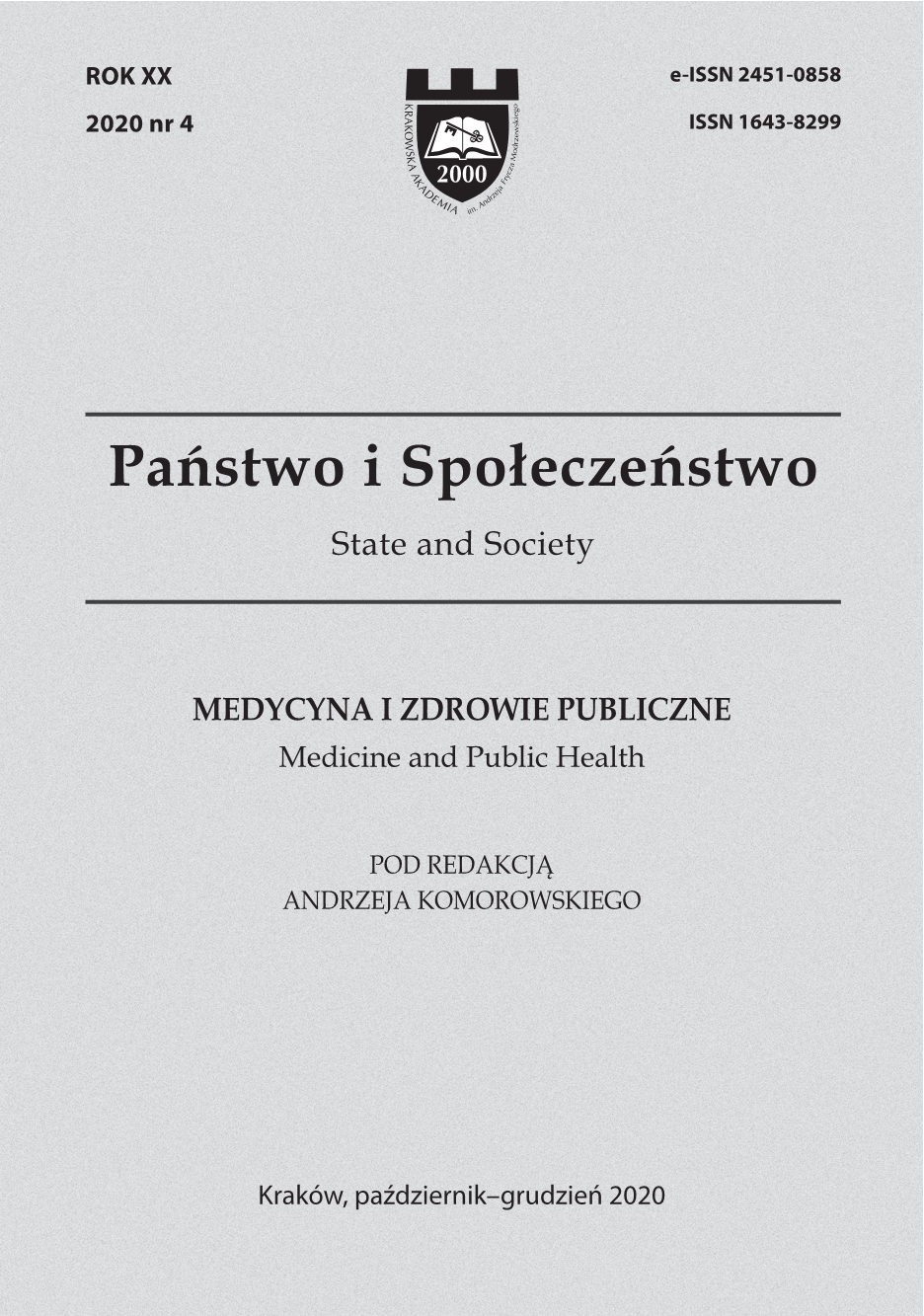Związek wieku chorych na raka endometrium z występowaniem niekorzystnych czynników prognostycznych choroby nowotworowej
The relationship between the age of endometrial cancer patients and the occurrence of unfavorable prognostic factors in the case of neoplastic disease
Author(s): Ewa Iwańska, Maja Janeczek, Konrad Muzykiewicz, Radosław Kosobucki, Marcin Misiek, Maciej Bodzek, Paweł BlecharzSubject(s): Evaluation research, Health and medicine and law, Gerontology
Published by: Oficyna Wydawnicza AFM Uniwersytetu Andrzeja Frycza Modrzewskiego w Krakowie
Keywords: endometrial cancer; prognostic factors; FIGO classification; lymphovascular; space invasion; cervical infiltration; age;
Summary/Abstract: Introduction: The aim of this paper is to assess the relationship between the age of patients with endometrial cancer and the occurrence of unfavorable microscopic and clinical prognostic factors concerning the disease. Materials and methods: A retrospective analysis of clinical material from 128 patients with endometrial cancer, who were initially treated surgically in the Center of Oncology (Cracow Branch) between 2012 and 2014, was carried out. The main source of information was medical records in the COOK archive. A survival time study was completed in May 2020. The stage of the neoplastic process was assessed according to the FIGO 2009 classification system. The results were statistically evaluated using the Shapiro-Wilk test and the Mann-Whitney test, and the graph shows the medians, quartiles and ranges of values or individual variables. The Kaplan-Meyer method was used to assess the relapse free survival rate. Results: The mean age of the patients was 63.9 years and the median was 65 years. The prognosis in the whole group of patients was very good, the 3-year relapse- free survival rate was 91.57%, and 5-years – 88.3%. The mean and median age of patients with negative prognostic was higher than in patients without these factors. Conclusion: It seems that from a prognostic point of view the most important factor in endometrial cancer is the coexistence of various population, clinical and microscopic factors. It is now considered that it is molecular factors that are of key importance in the prognosis of endometrial cancer patients. However age should be treated still as clinically important element in the prognosis and treatment planning of patients with endometrial cancer.
Journal: Państwo i Społeczeństwo
- Issue Year: XX/2020
- Issue No: 4
- Page Range: 61-70
- Page Count: 10
- Language: Polish

